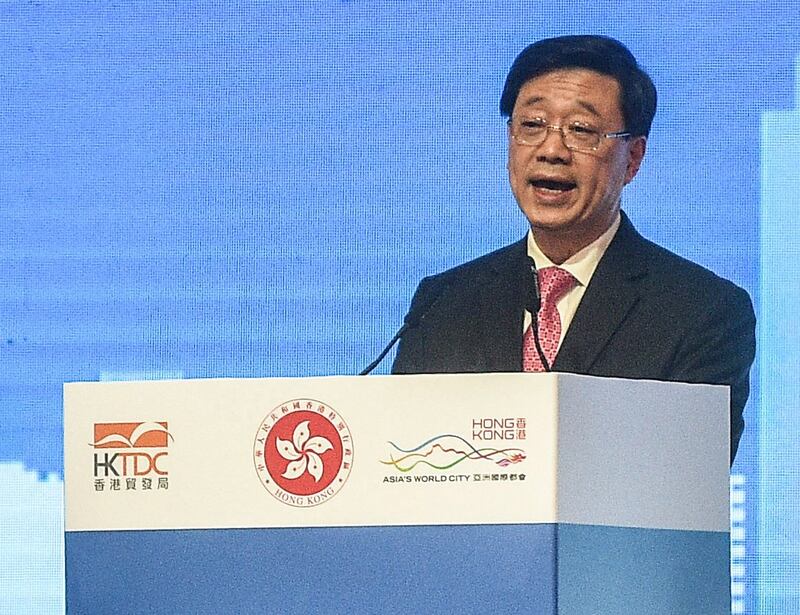University of Hong Kong president and U.S. citizen Zhang Xiang has denied allegations of 'mismanagement' linked to a donation of 10 million yuan from a U.S.-sanctioned company, saying the claims are part of an 'organized' smear campaign against him.
A member of the university council who requested anonymity for fear of reprisals confirmed to Radio Free Asia that the council had received an anonymous complaint letter accusing Zhang of accepting a donation from Shenzhen-listed laser printer maker Ninestar.
The U.S. Department of Homeland Security added Ninestar and eight of its Zhuhai-based subsidiaries to the Uyghur Forced Labor Prevention Act Entity List on June 12 for "for working with the government of Xinjiang to recruit, transport, transfer, harbor or receive forced labor or Uyghurs, Kazakhs, Kyrgyz, or members of other persecuted groups out of Xinjiang."
Ninestar filed a lawsuit contesting the move in August.
According to the whistleblower’s letter, the University of Hong Kong president's office requested that the funds from Ninestar – which were intended as scholarship money for 'patriotic' students from mainland China – be transferred to a "strategic development fund" controlled by Zhang, the anonymous person said.
The letter also claimed that the first installment of 8.5 million yuan was received by the university in April, but that the students had already been given the money from other sources in September 2022.
A university spokesman told the pro-China Sing Tao Daily newspaper that the donation complied with Hong Kong and Chinese law, adding that the allegation of "money laundering" was "totally untrue and constitutes a serious defamation of the university, donors and related organizations."
It said the money was never deposited in the Strategic Development Fund controlled by the President's Office.

Zhang, who has been in his post since 2018 and who spoke out against the 2019 protest movement, also issued a statement describing the allegations as "rumor-mongering" and "serious defamation."
"It is extremely regrettable that confidential information which only members of the council should receive has been leaked," he said.
Student representative Casey Chik, who has a seat on the council, called for an independent investigation into the claims, as a special meeting planned to discuss the letter was adjourned until Monday after receiving a "legal letter" from Zhang, according to multiple media reports.
But members of the council including Chik have called for full disclosure of all relevant internal documents and for the setting up of an investigation committee whose proceedings are open to the public.
"These absolutely constitute prima facie evidence," Chik told Radio Free Asia on Tuesday.
"If the accusations are true, such disregard for the university's system will seriously damage the reputation and interests of the university community and may incur criminal and civil liabilities on the part of the university or the president and vice chancellor," Chik said.
Chief Executive John Lee told reporters on Tuesday he is confident that the matter can be handled by the university's internal complaints processes.
"The University of Hong Kong Council and the Vice-Chancellor ... have clear responsibilities under the present guidelines," Lee said.
"What is important is things should be handled in accordance with laid-down procedures, and any matter should be dealt with in a fair and impartial manner," he said.
Zhang said the allegations "are believed to be organized and deliberate," and that he had hired a lawyer and requested more time to prepare for the special meeting.
Current affairs commentator Johnny Lau said Zhang's denial uses the language favored by the ruling Chinese Communist Party, because it claimed that the author of the letter had some kind of ulterior motive.
"They may not have used those exact words, but there is already a culture [of making such claims]," Lau said. "They are trying to create a sense of disharmony and suggest morally questionable behavior, hoping to get the final word."
The letter also claimed that the university had hired two U.S.-based headhunting firms to recruit a new dean for its medical school without putting the job out to tender, as well as refurbishing canteen facilities for senior faculty and buying a BMW worth HK$2 million without using tendering processes.
Translated by Luisetta Mudie. Edited by Eugene Whong.
